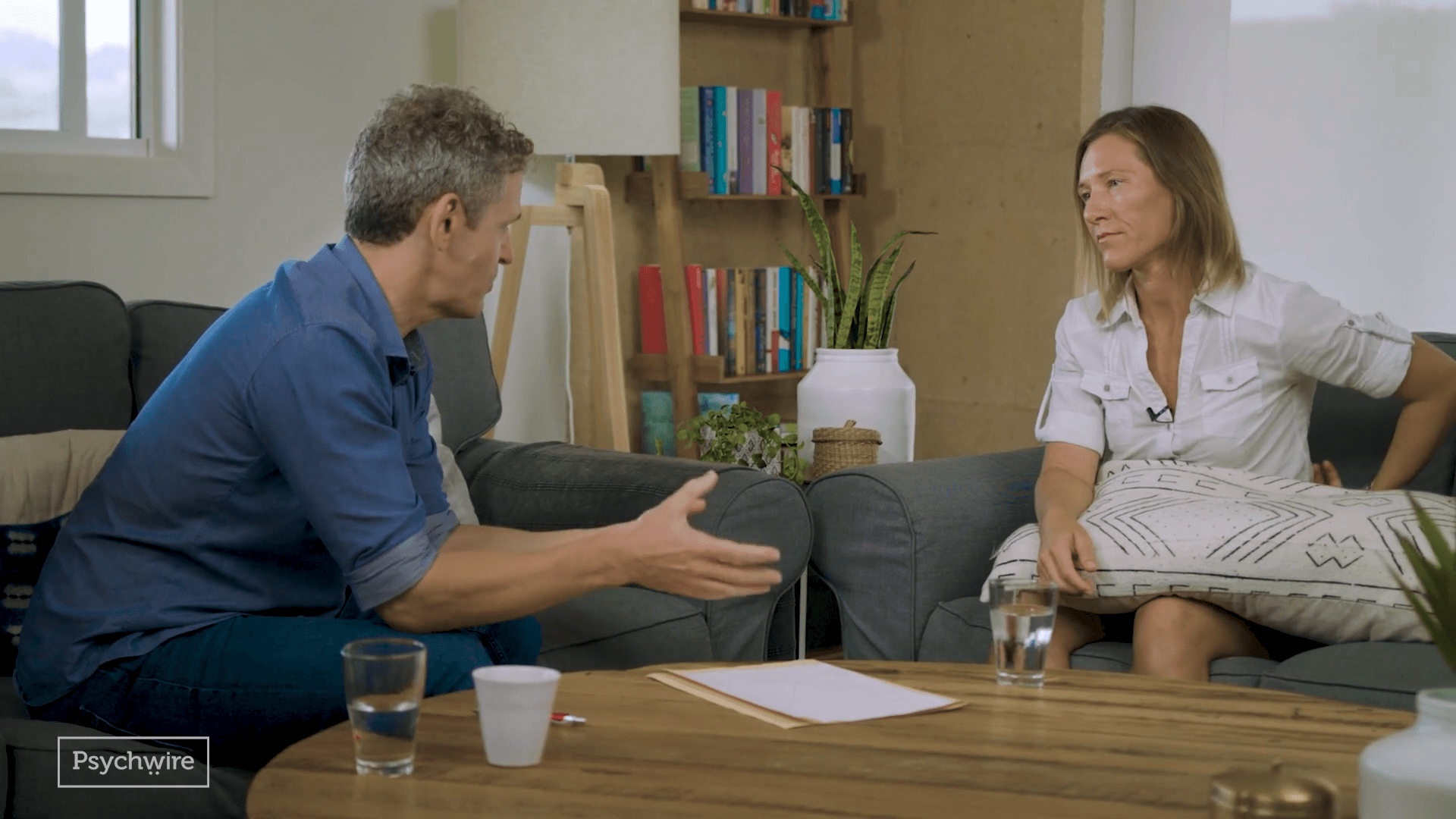
Choice Point and Values in ACT
 ACT for Beginners
ACT for BeginnersAshley is the mother of four young children. She is the primary caregiver, her husband is often away for extended periods of time. She is in particular having a lot of difficulties in the relationship with her oldest teenage daughter who has become very rebellious and defiant, and she's experiencing a lot of anxiety, depression, and guilt largely related to the stresses of her role as mother. This is the kind of choice point that we kind of drew up last time. It strikes me that I kinda know a lot about the the difficulties going on in your life with your husband and your kids and all of those stresses a lot about your, your difficult thoughts and feelings, your kind of anger and frustration with the kids, and your anger with your husband for being away so much, and a lot about your thoughts, how your mind keeps beating you up and telling you the bad mother's story, and you're not dealing with the kids, all this kind of stuff, and all of this judgments about the kids, why can't they just sort themselves out?
All that kind of stuff, sir? And I know a lot about kind of the thoughts and feelings that are hooking you and jerking you're around a lot about the real problems that you're facing. And I know a lot about your away moves here. We wrote some of the main ones, you know, shouting at the kids exploding, losing your temper, locking yourself in the bedroom plane on the computer, to get away from the kids, leaving the kids to their own devices, too much to handle, and kind of, you know, shouting matches with your, your oldest daughter, and all that kind of stuff. So we don't really, my sense is that this kind of the towards music are a bit vague at the moment. We've got written down in proof things with James build a better family life, handle the kids better, peaceful family, you know?
Yeah. But I'd really like to get a better sense of what that really means and what that would look like. Because, you know, all of these unhooking skills that you're practicing are really to help you unhook from those difficult thoughts and feelings so that you can act more effectively in those situations, be more of the person you wanna be, achieve these kind of things that you've put down. Is that so is it okay if we make that the main focus for today's session? Okay. That sounds good. Thanks. So I really kinda wanna get a sense then said there's so many different important relationships to you, you know, and we didn't even write down the ones about your, your brother and what he's going through.
So that's also a big source of stress. If we were gonna just get a pick one of these relationships to start with, with one of your children or with your husband, which one should we just start having a look at first? Because we try to do them all at once. It's just overwhelmed. Okay. So if we maybe look at Chelsea? Chelsea. Yeah. Okay. And she's sixteen. Right? Yes. I know that because I wrote it down. And, you know, what's what's the most difficult thing going on with Chelsea?
Well, It's like we just fight continuously. So I can't help it, and whether it's to something ingrained in me because that's what my parents did to me or whatever. But every time she does something, I have to Well, to me, it's wrong. Everything she does is wrong. And Yeah. And I I'm just trying to help her, so she doesn't you know, get a bad reputation for herself or, you know, get something bad happen like with my brother, like, I don't want her to end up doing the wrong type of drugs or something, and then she ends up in psychosis or Yeah. You know, I'm just really fearful. She, you know, just gets a bad reputation with boys or-- Yeah.
And then can't get a job. Like, it's just, it's all She's really worried about it. Yeah. Yeah. And you want the best for her. I want the best for her. I don't want her to have to suffer. Yeah. But we just fight when she screams, she hates me. And and then-- So she does get to see all the kind of love and caring that's underneath this.
She gets to see what's at the surface that the kind of shouting and Yeah. It just me just Yeah. Exploding, I guess. Underneath all of that, you just love. Yeah. Still a baby in your own? It's hard. It's, yeah, it's hard because I see the baby that she was, and I can see that. And then now she's all grown up, and I feel like two different people.
Yeah. And to what I imagined she was gonna be. Yeah. And to what she is, and it's just I feel heartbreaking, and I worry if something happens to when we don't get through this time. And Yeah. Just constant worry about everything. Sure. I mean, I mean, there's, you know, what I see here right now is just so much love.